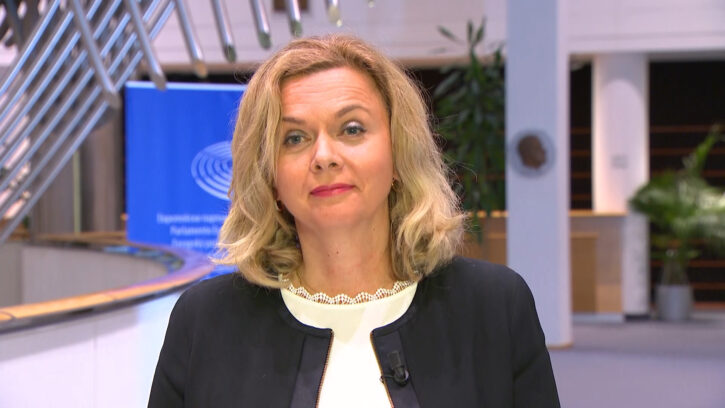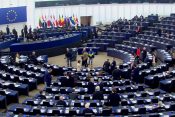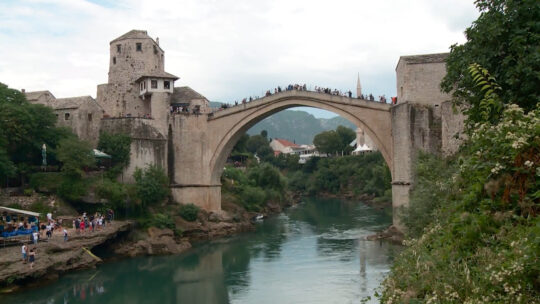
If Croatia was not an EU member, Croats would disappear as a political actor in Bosnia, Croatian European Parliament (EP) member Zeljana Zovko said on Tuesday, adding that Croatian representatives in the European Parliament have strengthened the position of Croats in Bosnia.
“The atmosphere in Bosnia and Herzegovina has considerably changed, it is easier to have a dialogue,” she said, adding that throughout the past 20 years, during which the election law and the Constitution in Bosnia have remained unchanged, as well as with the “criminalisation of the political leadership of (Bosnian) Croats, it had come to the point where negotiations on the future of Bosnia and Herzegovina only take into account Sarajevo and Banja Luka.”
“Imagine a situation where Croatia is not part of the EU. We would now, apart from Zeljko Komsic, have a government set up by Bosniaks. Believe me, nobody who is politically significant would still be there, nor would anyone be engaged in politics,” she said about Bosnian Croats.
Zeljko Komsic is a left-leaning politician from Sarajevo and currently the Croat member of Bosnia’s tripartite Presidency.
Bosnia is composed of two semi-autonomous entities – one with a Serb ethnic majority, Republika Srpska (RS), and the other shared mostly by Bosniaks and Croats, the Federation (FBiH).
The state-level Presidency is composed of three members, each representing one of the country’s three ethnic majorities. The Serb member is elected from the RS, and the Bosniak and Croat members are elected from the FBiH.
European Parliament (EP) members from Croatia have been expressing “deep concern” over his election because they claim that, in fact, majority Bosniaks have elected him and therefore he does not deserve to sit in a chair reserved by the Constitution for a representative of the country’s Croats.
Croatia has been heavily lobbying on behalf of Dragan Covic, the leader of the Bosnian branch of the Croat Democratic Union, the ruling party in Croatia.
But Croatia’s efforts in the EU have been met with criticism. Bosniaks, as well as former top officials serving in the country, have been saying Croatia is actively interfering in Bosnia’s internal issues.
“Now, through Croatian (EP) representatives, our Prime Minister, the (Bosnian) Croat voices are taken into account,” Zovko said.
She said that, in the past, “Croats have learned a very difficult lesson.”
“When Bosniaks and Serbs agree, they (Croats) do not exist,” she said, exemplifying it with a former government that was made of a mix of non-nationalist, multiethnic parties.
That is, according to the EP representative, the reason for why Croats are now cooperating with Serbs.
Serbs understand if Croats would lose their position as constitutive peoples in the country, they would be next, Zovko said.
“Bosniaks are putting together their own government, Croats their own, and Serbs their own. There is no love there. Nobody there loves one another. There is no ideological common ground, it is a state of frozen peace,” she said, adding that “Zagreb hardly understands this as it is a member of the EU and NATO, and feels secure.”
“Down there, you are in a constant state of war,” Zovko said of Bosnia. “And of course you need to look out for the enemy in that war in order to survive,” she said, adding that with his resistance to Sarajevo, the Bosnian Serb leader Milorad Dodik is helping the Croats.
Dodik has for years been advocating the dissolution of Bosnia and the secession of the Serb part of it.
A territorial rearrangement of the country is a goal he shares with the Bosnian Croats.
Zovko also said that EU expansion in southeastern Europe is in Croatia’s interest as that would secure peace in the region but a precondition for Bosnia to join the Union would be a change in the election law that would make sure each ethnic group elects its own representatives.
There are a number of ‘civic’ parties in Bosnia and Herzegovina which want the country to move away from the ethnic concept, and Zovko said the international community supports those parties, but that “civic options, in fact, do not exist,” and that “Sarajevo is a city where only one ethnic group lives.”





